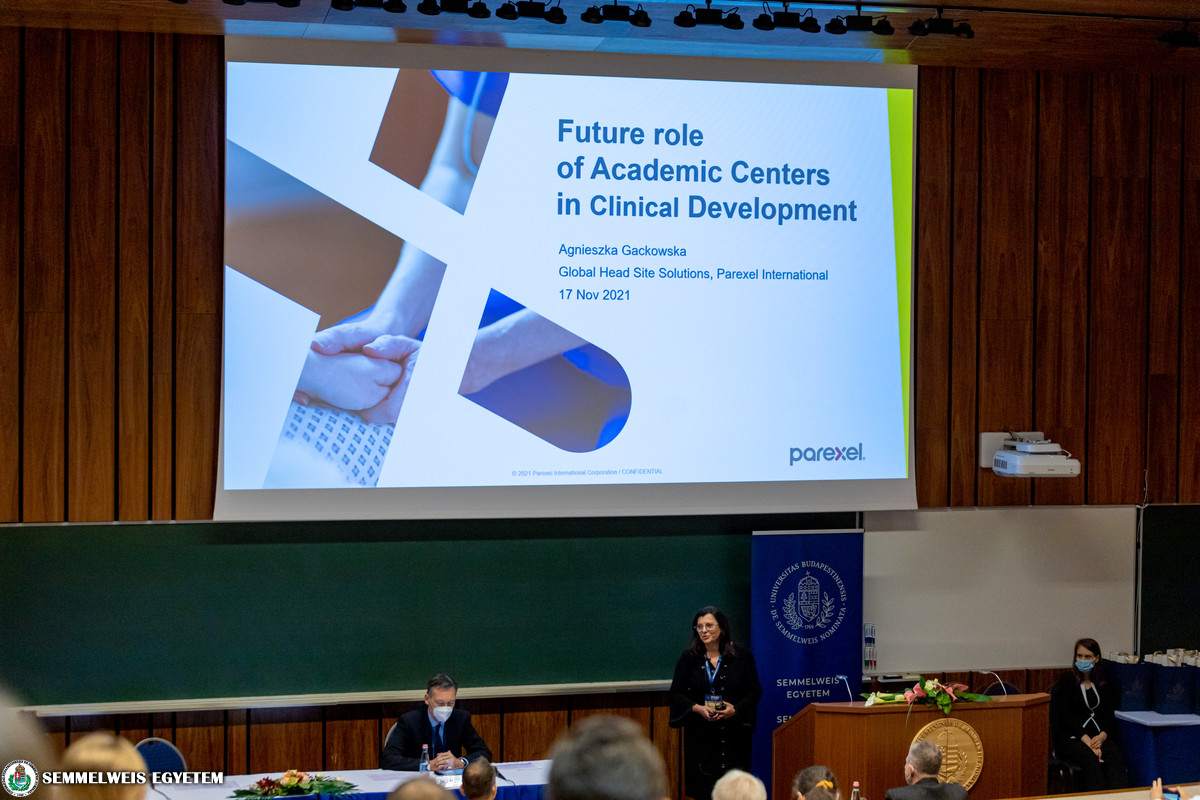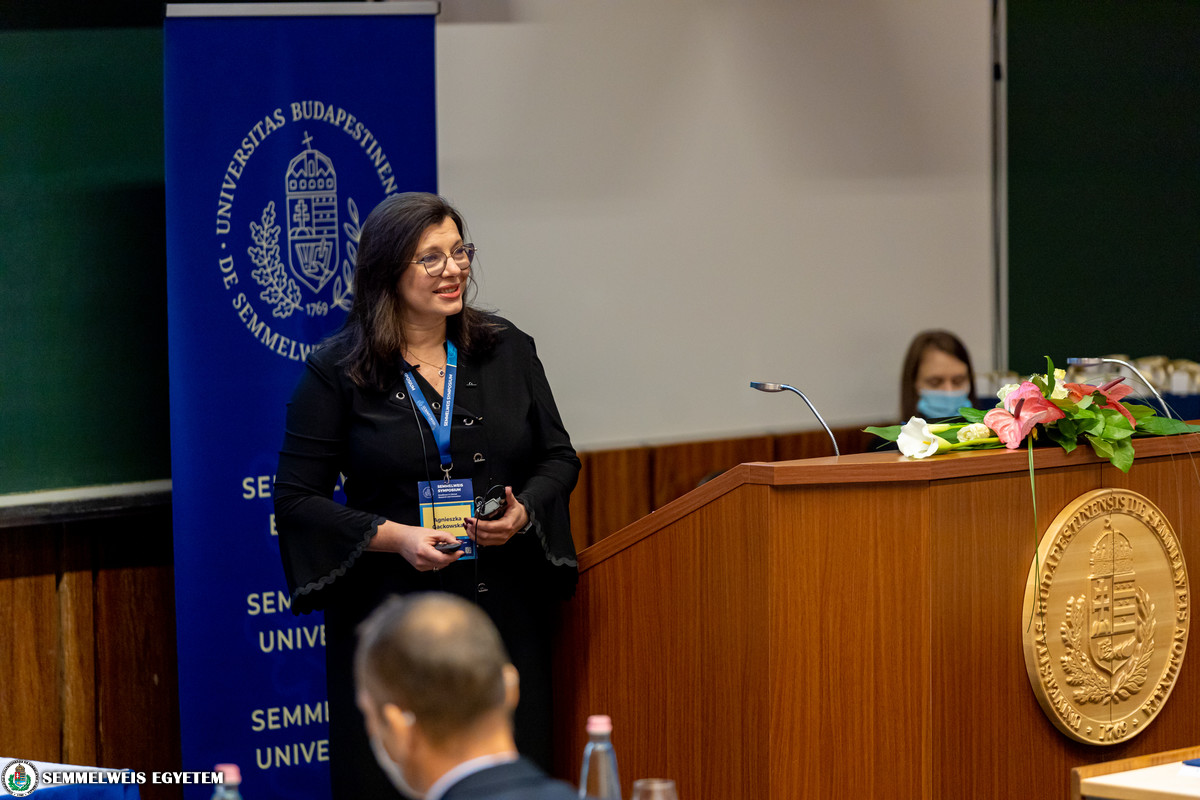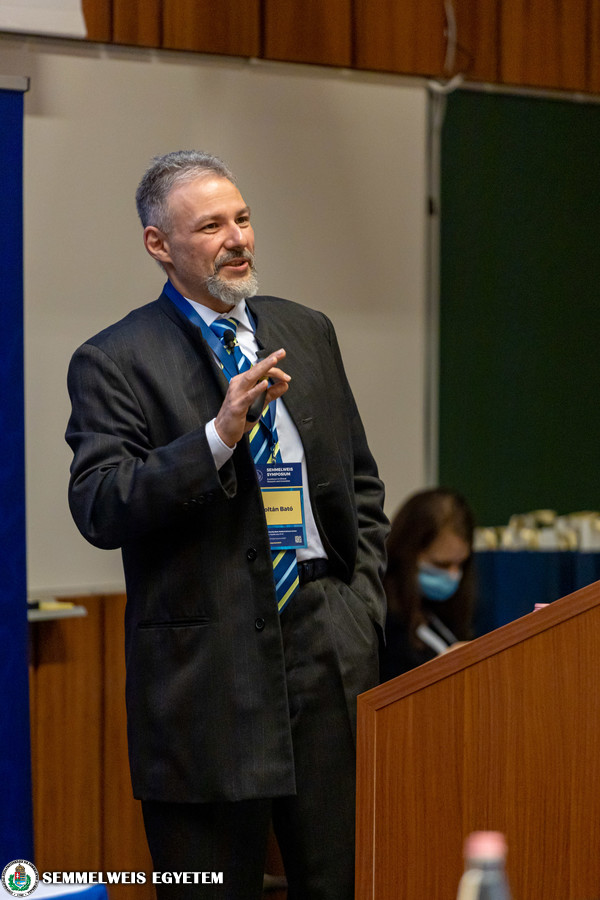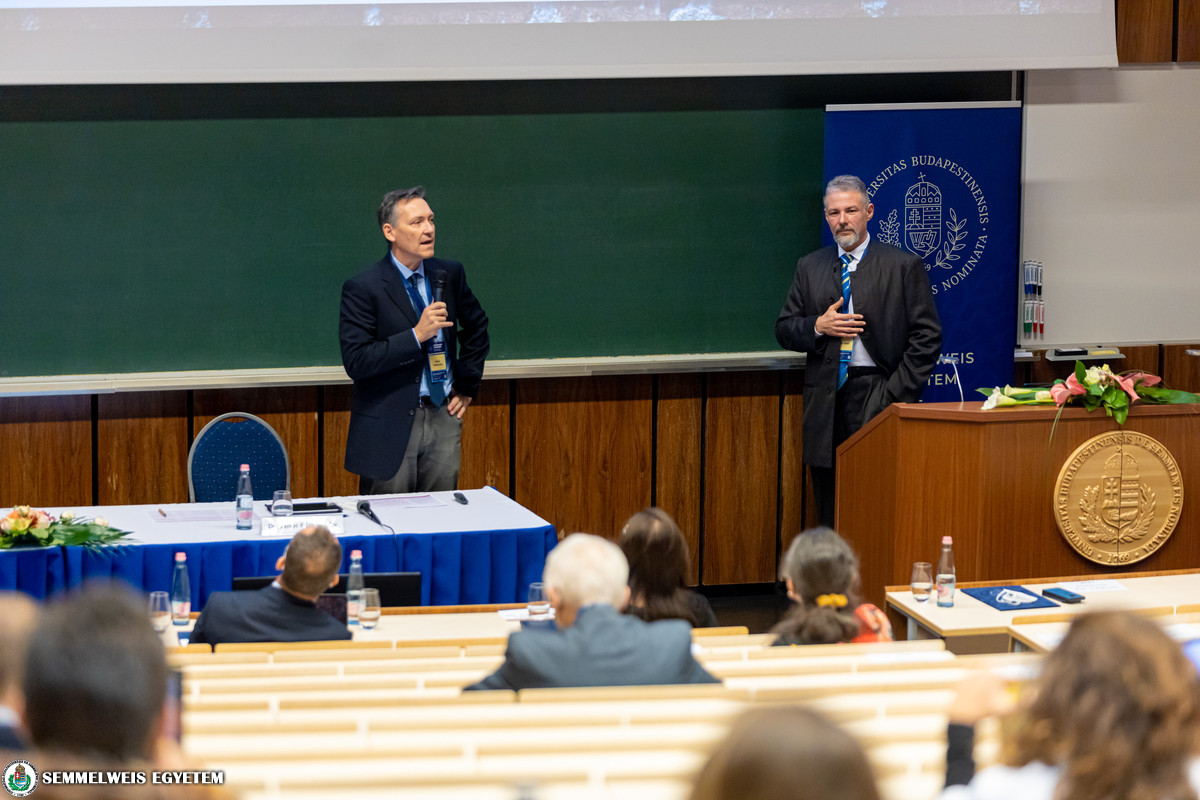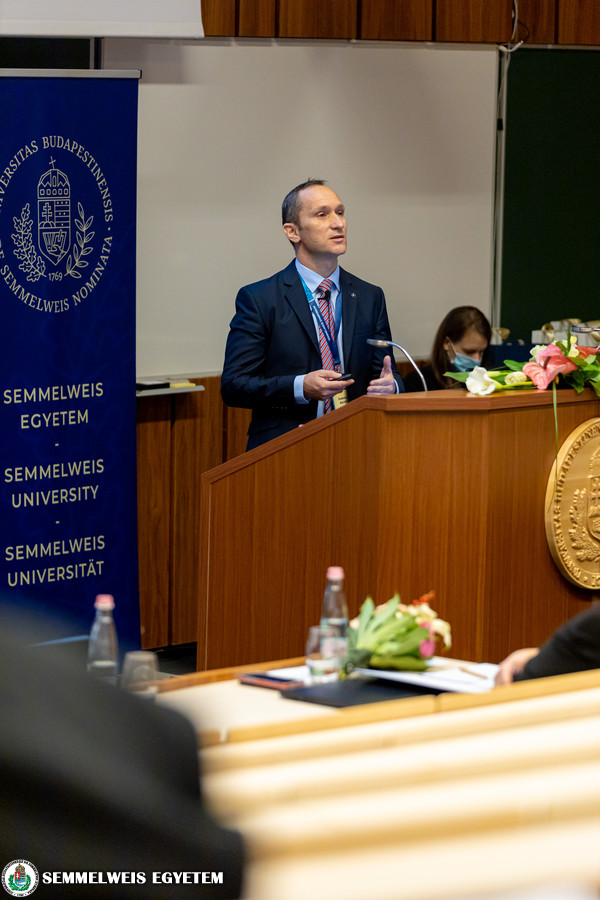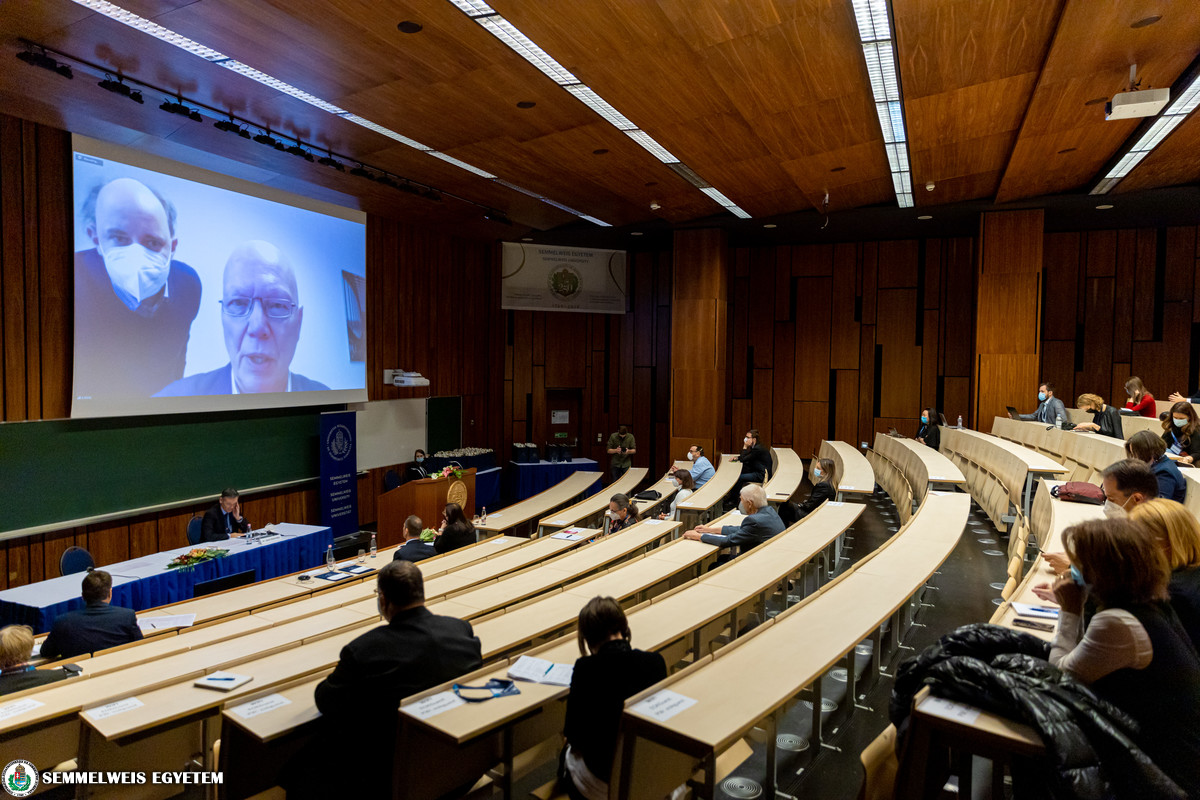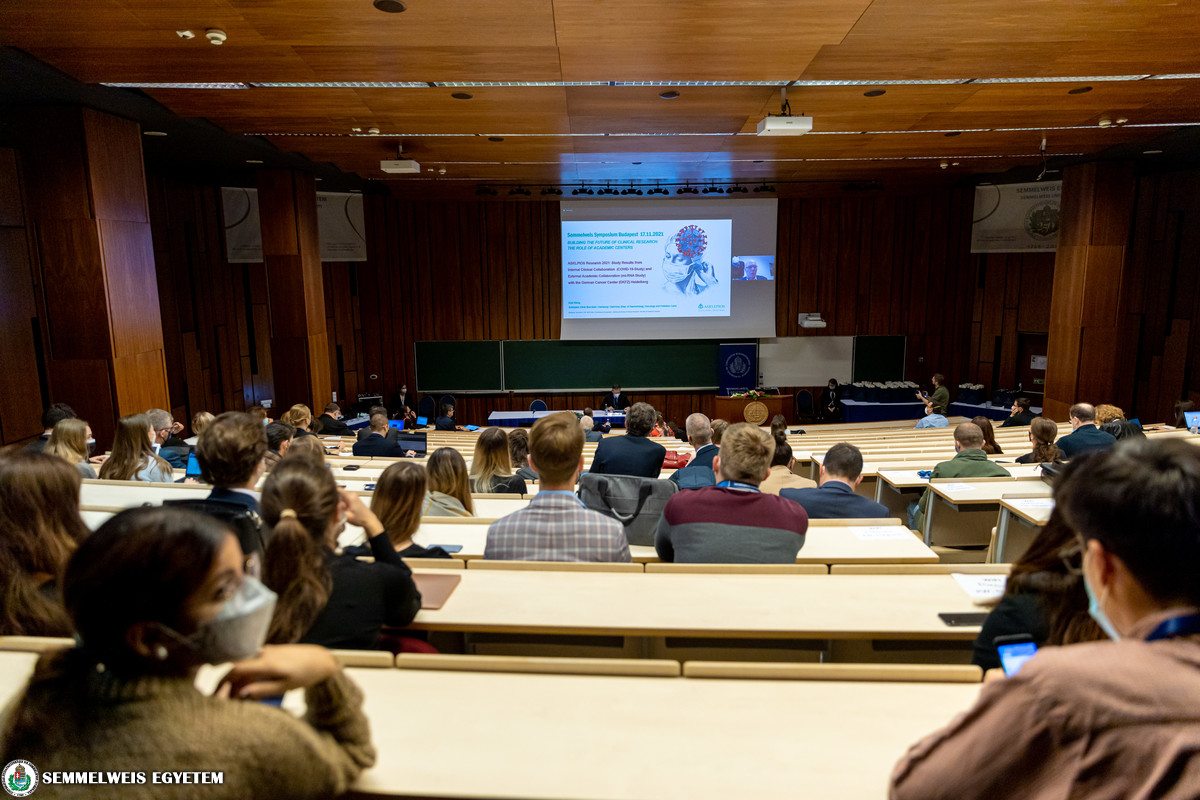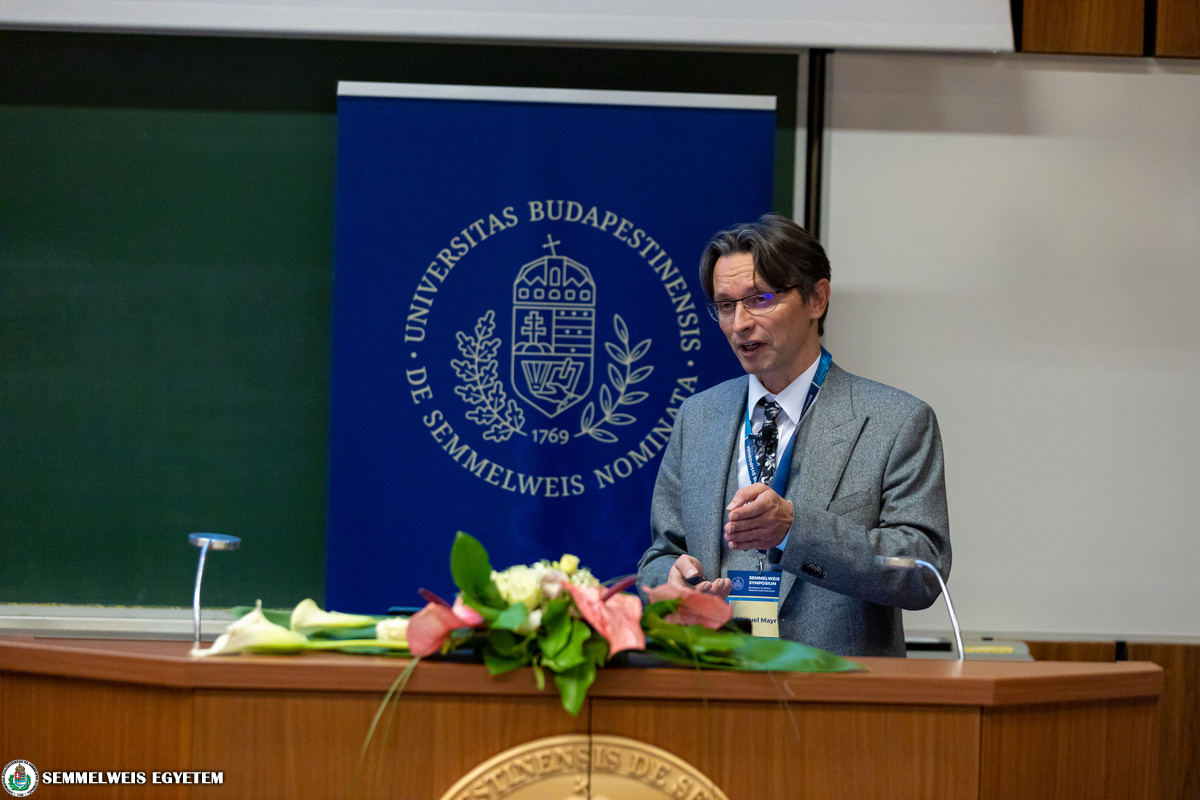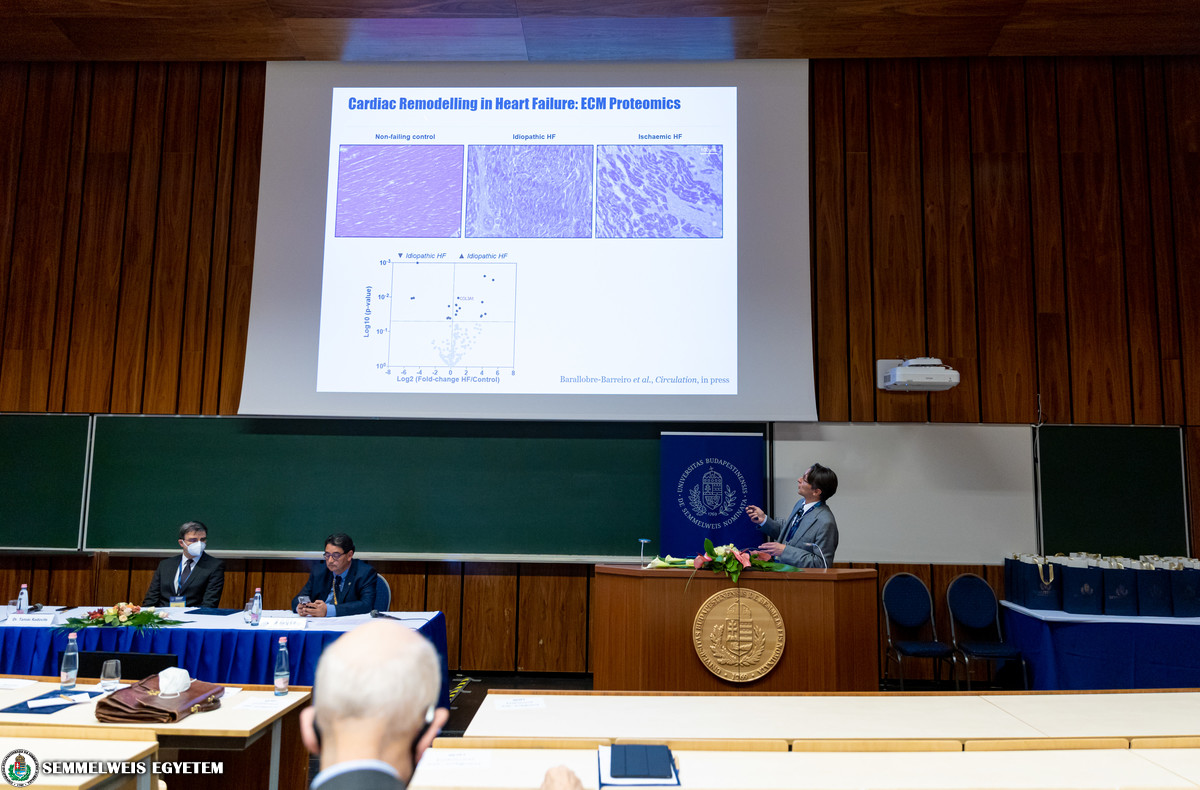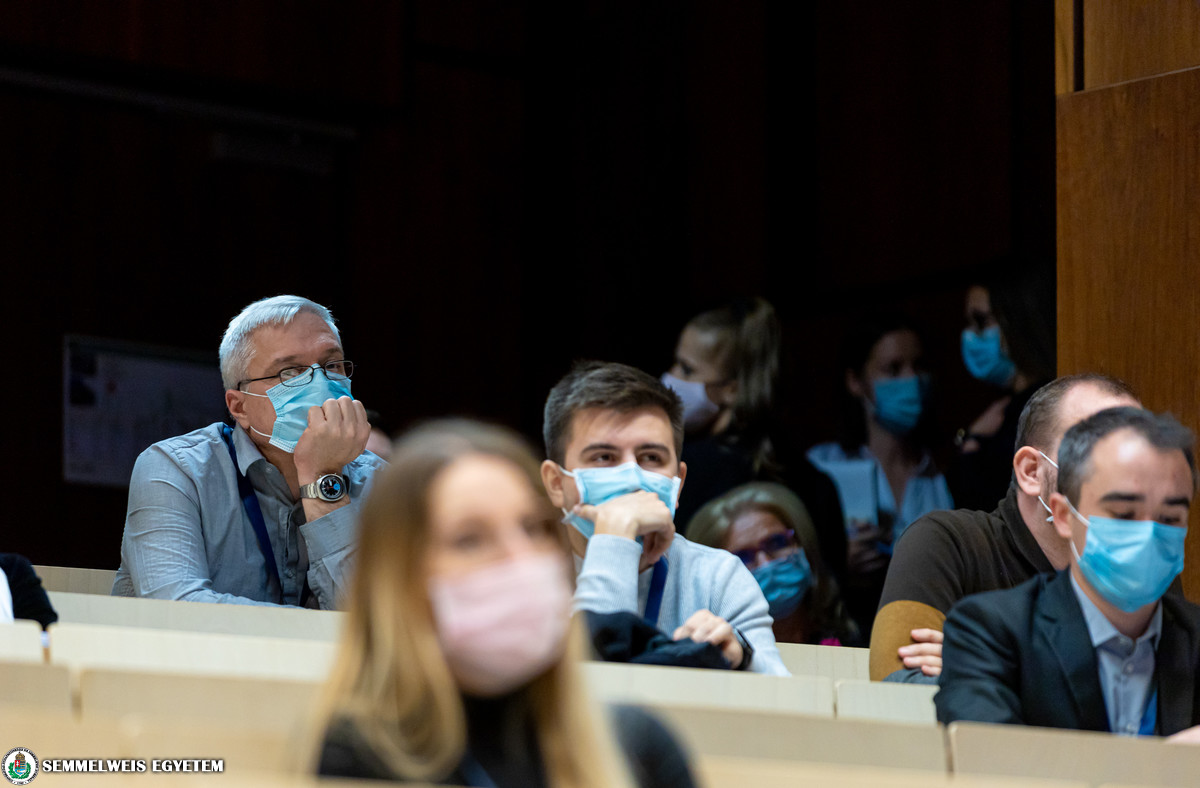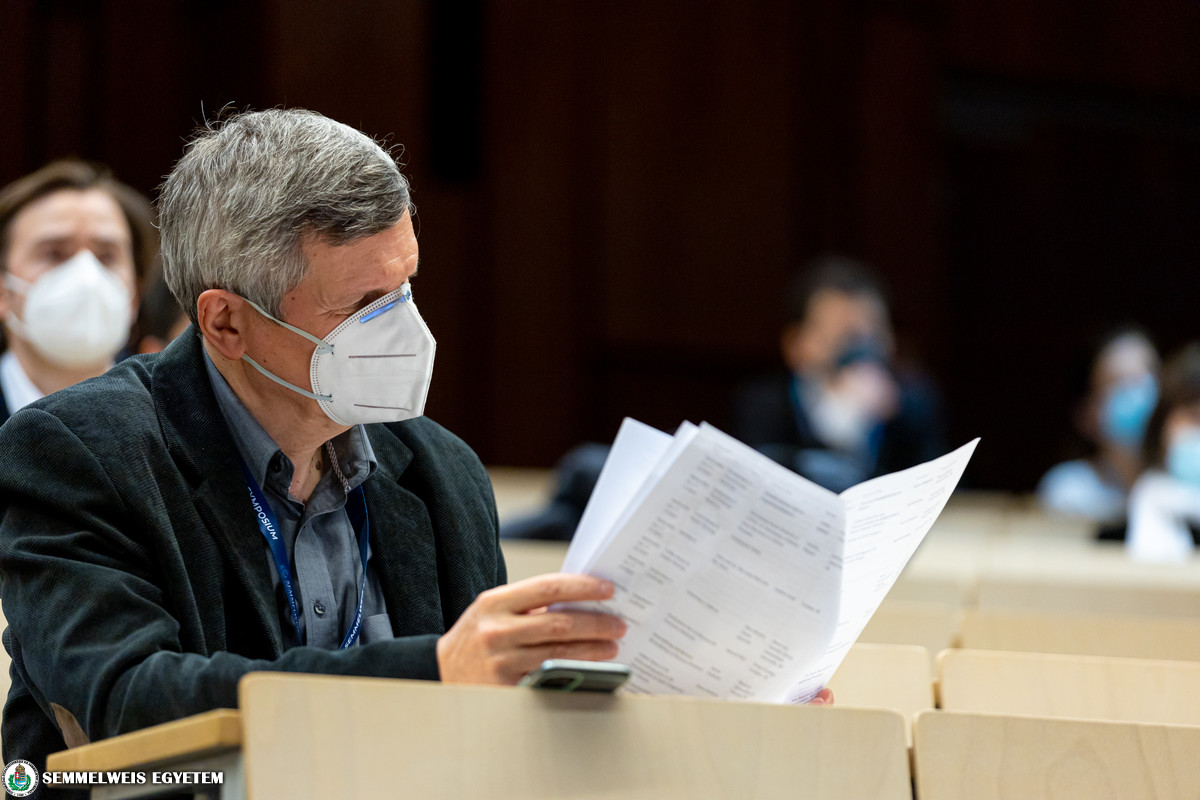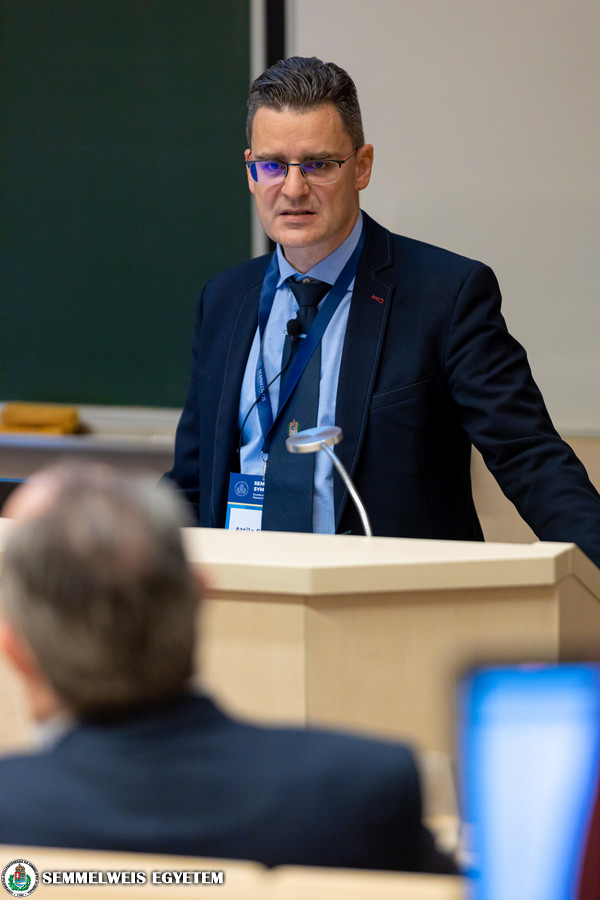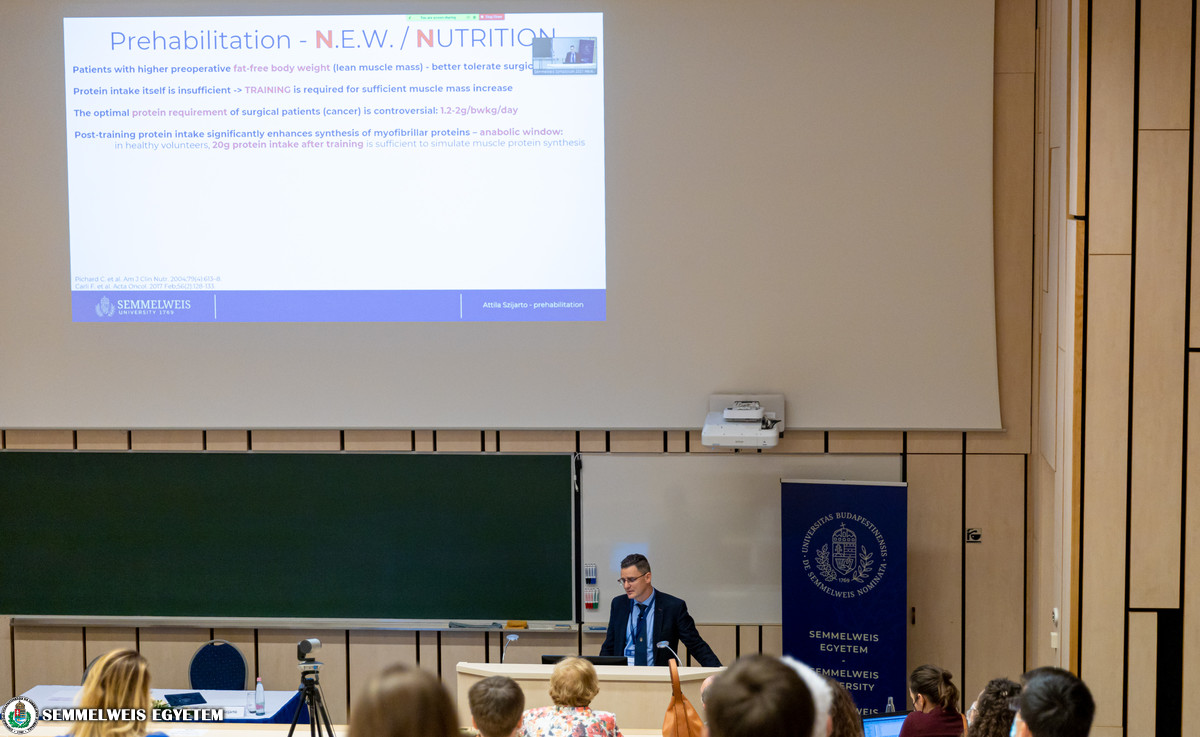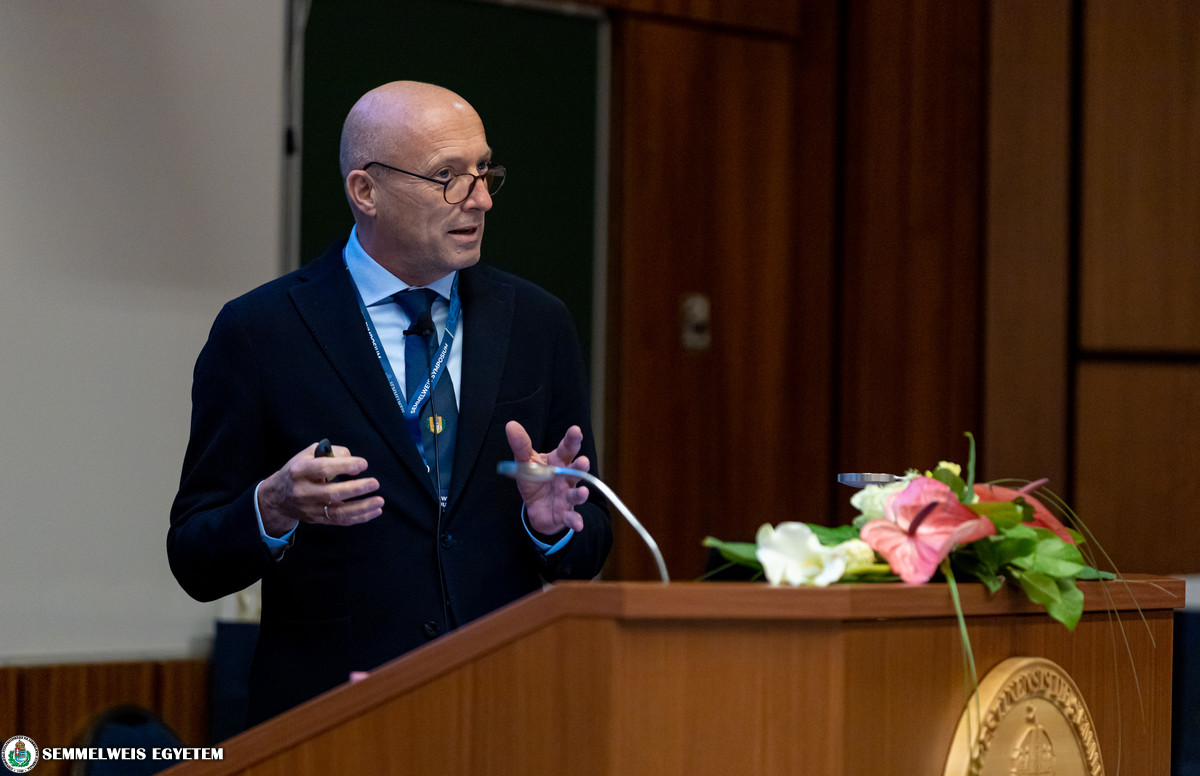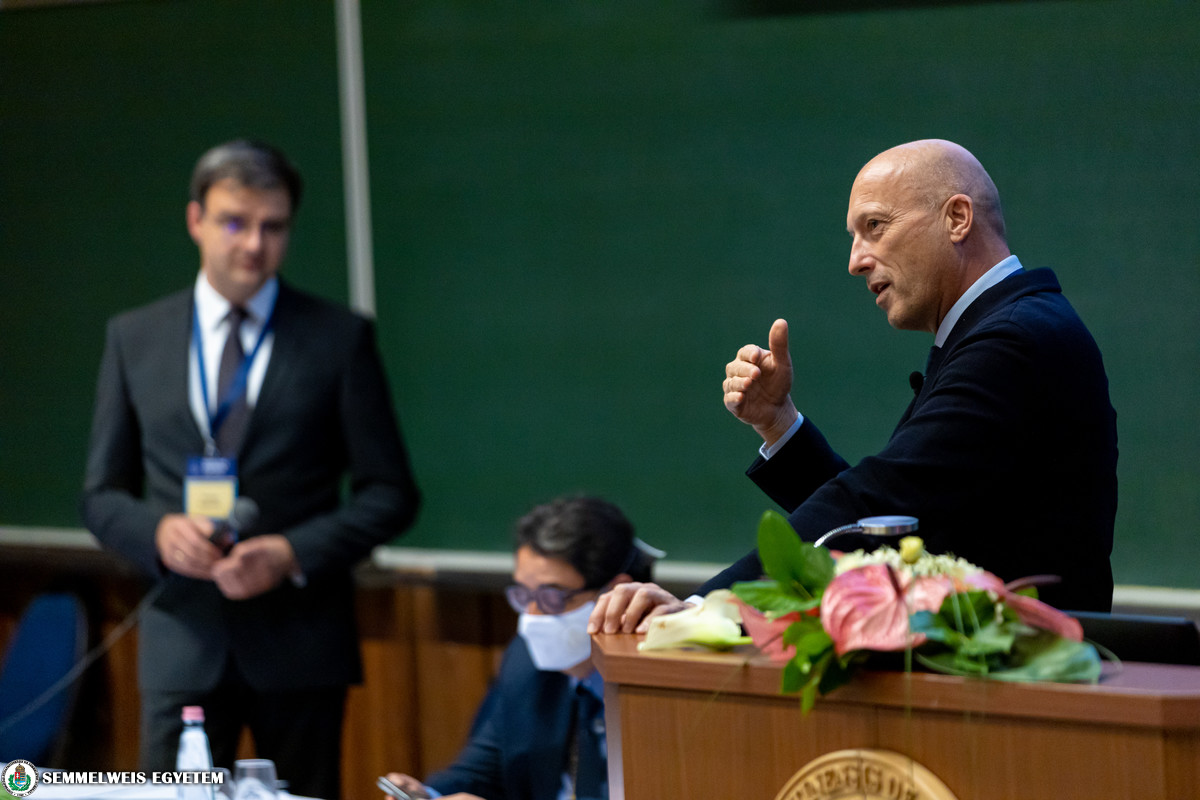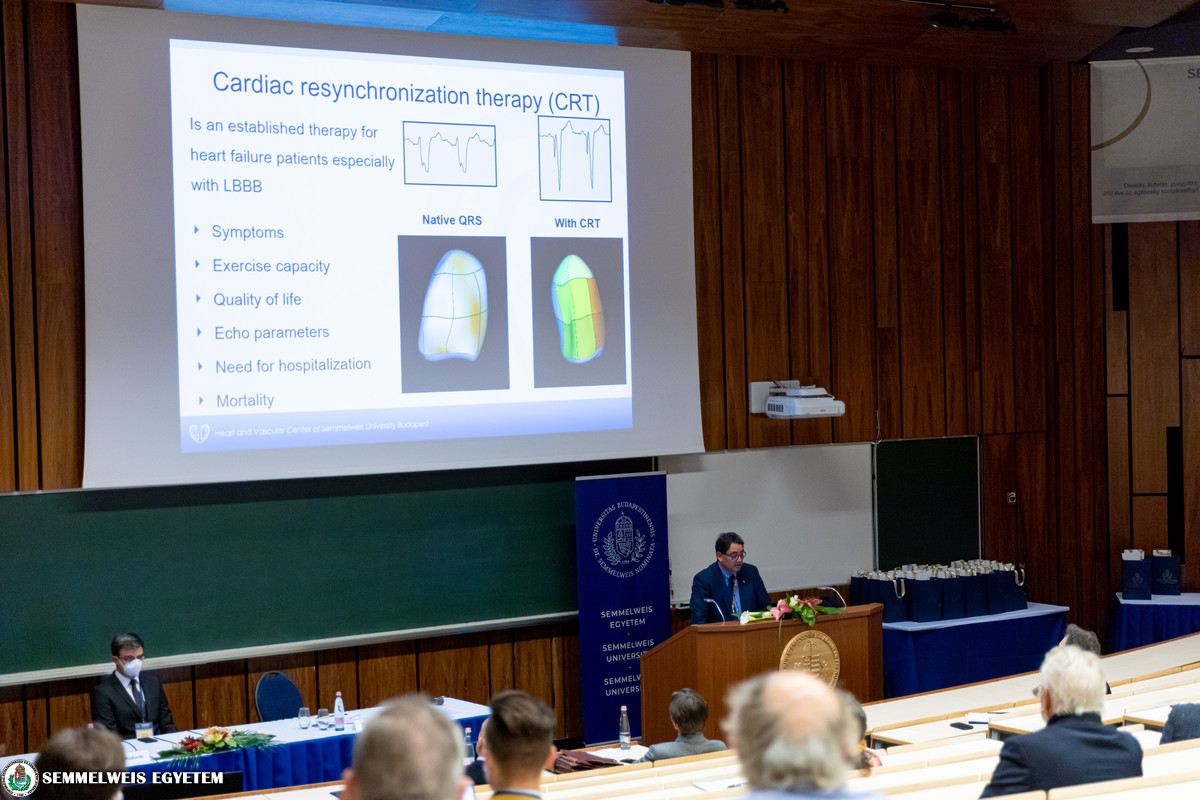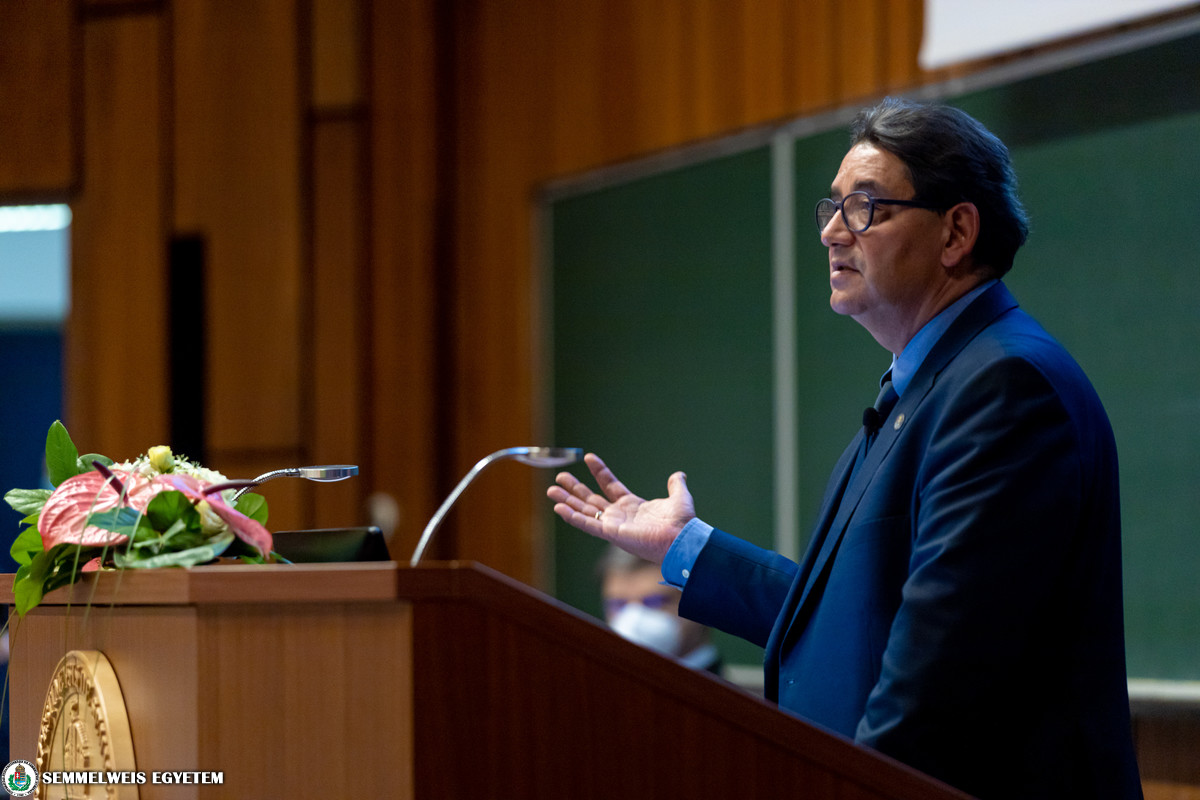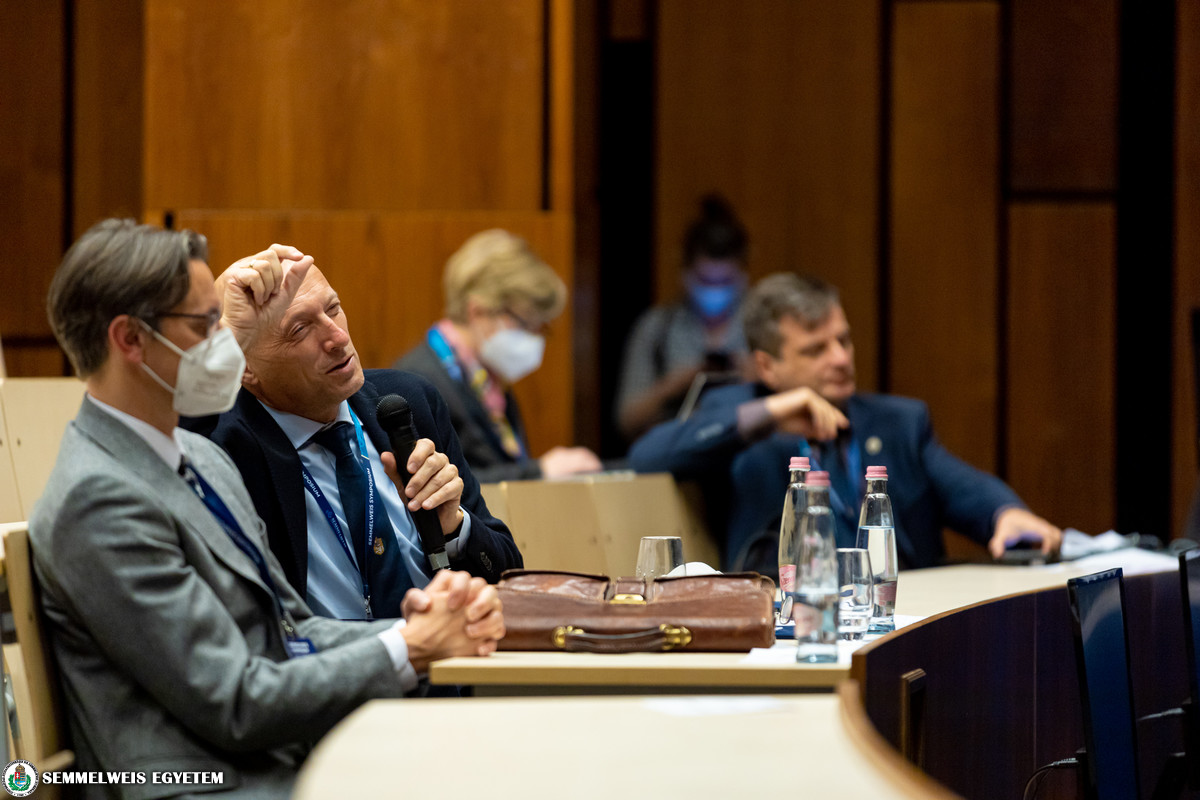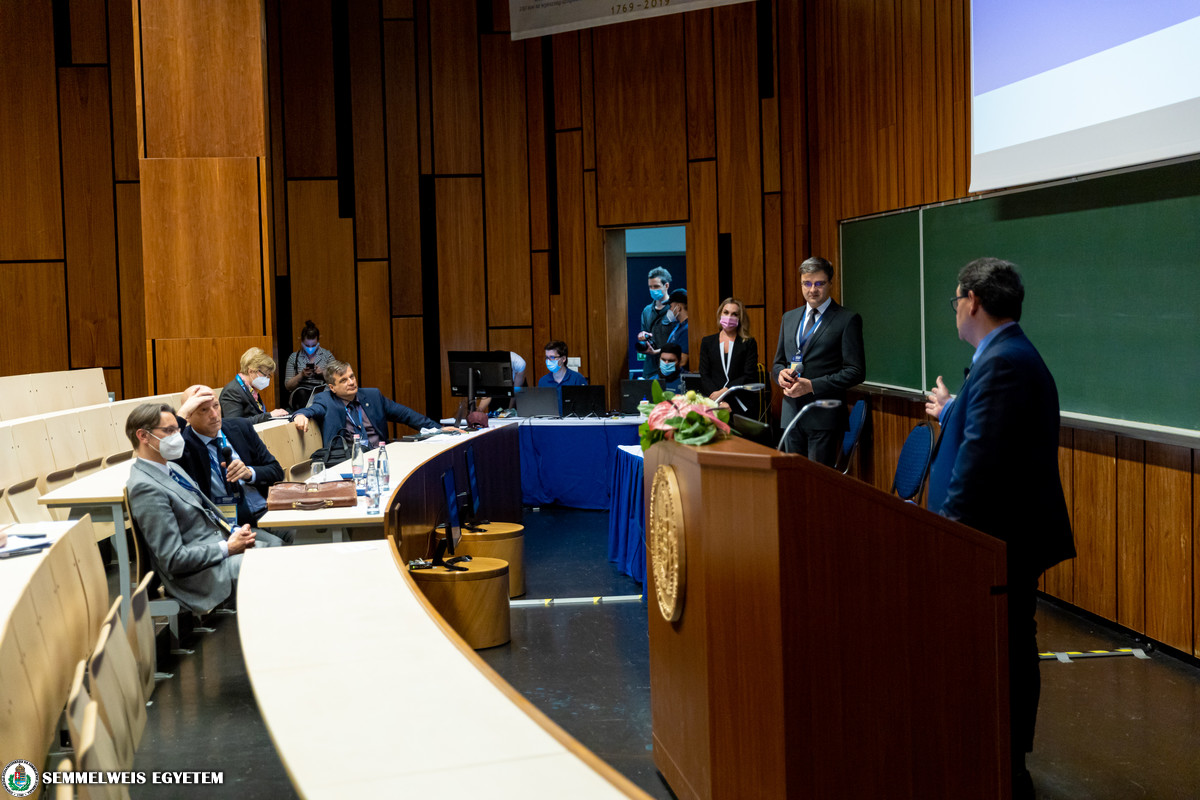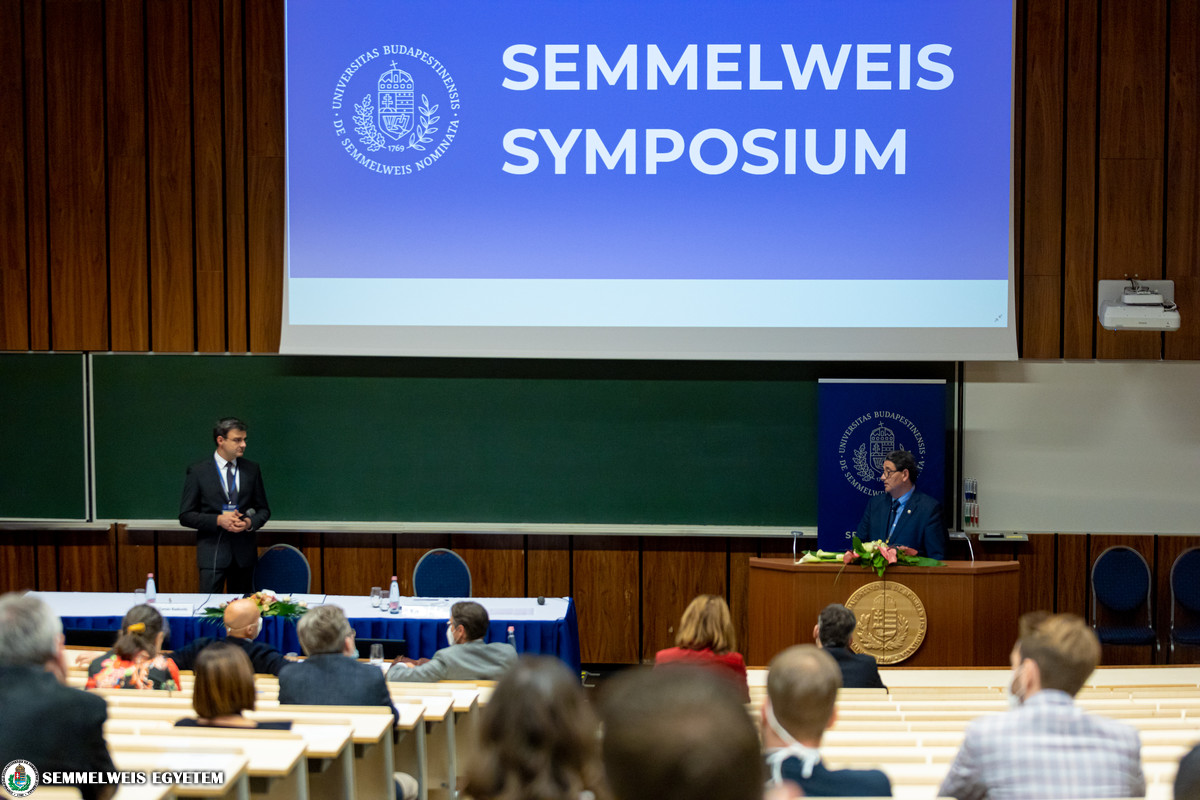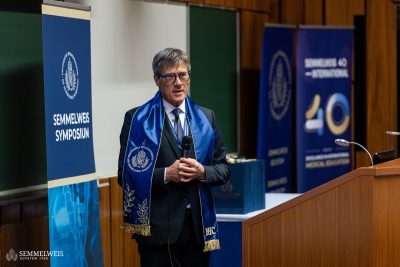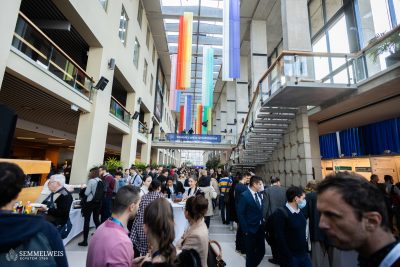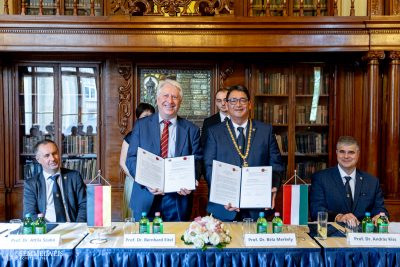The main topics of the second day were clinical research, basic research and clinical application, related regulatory issues and new technologies and procedures. In the sessions, on the future of clinical research, translational medicine, cardiology and surgery, concrete examples were used to illustrate current research trends, efforts to apply developments in the theoretical experimental phase to clinical practice as soon as possible, the results of basic and clinical research at Semmelweis University and their application in routine patient care.
Academic institutions in clinical research
In the session “The future of clinical research – the role of academic institutions in clinical research”, Hungarian and international speakers highlighted the increased role of universities and clinical research centers. There is a long way to go before clinical trials and basic research can be applied in clinical practice, and new therapies, treatments and new technological applications can be introduced into routine patient care. Along with regulatory authorities and the industry, university clinical research centers play a key role in shortening this path.
Agnieszka Gackowska, Global Head of Parexel International, pointed out that clinical trials and studies have become more complex, new technologies such as e-health applications have changed the demands on university clinical research sites. To remain competitive, these requirements need to be met as soon as possible. Based on her personal experience, she highlighted Semmelweis University’s leadership and excellence in clinical research.
She said that approximately 35,000 new molecules are being developed today, which are in various stages of development. About 3,000 compounds are being developed globally for COVID 19 therapies alone. She underlined the importance of collaboration; effective joint cooperation between academic research centers and industry developers is needed for success. As a good example, she mentioned the collaboration agreements with Semmelweis University. Universities also have a key role in education and training. New jobs will be created related to clinical research, and universities need to launch new courses to train specialists of clinical research. Training clinical trial coordinators, project managers, investigators and nurses, quality assurance specialists is essential.
In the second presentation of the session, the speakers presented the successful joint cooperation of Semmelweis University and Pfizer in a case study. Effective collaboration contributes to the success of clinical development in the COVID-19 indication, significantly reducing the administrative tasks associated with the start-up of a clinical trial and the initiation of the trial within 35 days. Dr. Zoltán Bató from the pharmaceutical company stressed that effective collaboration is based on effective and frequent communication and trust.
Dr. Szabolcs Barótfi, MSD’s Clinical Director, highlighted the advantages of domestic clinical research and listed the steps necessary to maintain competitiveness. He drew attention to the the EU-wide clinical trial authorization procedure, which is to be introduced next year and the tasks of the Hungarian testing centers and clinical research sites. Professor Axel Stang, Head of the Clinical Trials Coordination Centre at the Asklepios Clinic, the University’s training center in Hamburg, shared his experiences and spoke about the importance of cooperation between international trial sites. Structuring and analysis of clinical data were repeatedly mentioned in relation to the tasks highlighted by the speakers.
Dr. Bertalan Meskó was the keynote speaker and described the visionary future of clinical research, healthcare industry and patient care. What changes should we expect in the doctor-patient relationship as technology is introduced? Can we as patients imagine, or accept, that routine blood sampling, for example, will be carried out by robots? These were the provocative questions he asked. The adoption and acceptance of new technologies and procedures by patients and their doctors have been accelerated by the challenges of the COVID epidemic. New applications and telemedicine have become accepted in a matter of minutes. Around 30,000 new health app developments are released globally every day. The question is whether these apps and robots will take over the role of doctors. In his opinion, the future lies in building doctor-patient relationships and trust, with new technologies and procedures helping this. He drew the attention of medical students, the doctors of the future, to the fact that there is a cultural revolution in building doctor-patient trust and relationships.
The tasks and challenges of translational medicine
The session chaired by Dr. Péter Hegyi drew attention to the challenges and tasks of translational medicine, and the rapid application of basic research. In his presentation, the Director of the Center for Translational Medicine emphasized the training tasks of the Center, and his colleague, Dr. Andrea Szentesi, presented the form of training. She underlined the importance of methodology across interdisciplinary therapeutic areas. The speakers of the session, renowned representatives of the profession, presented the achievements of translational medicine in specific disease groups and indications through examples. They also spoke about the successful launch of a new translational PhD training program.
The role of artificial intelligence was mentioned several times during the Symposium, and its practical application in clinical research from analysis to the bedside. It was also the subject of a keynote speech by Andrew Fried, a renowned expert on the topic and former IBM expert on artificial intelligence applications. As he pointed out, a successful application requires a further increase in computing capacity and storage. Artificial intelligence relies on data for analysis, whereas classical information processing by the human brain involves emotional corrections. He also drew attention to the purity of data and the regulatory challenges related to its exploitation. His views on the new challenges coincided with those of Dr. Bertalan Meskó.
For AI applications to succeed, we will need more and more data, but patients are the owners of their data. They should be given the opportunity to decide whether or not to allow their data to be used for research purposes.
– How much of our data confidentiality are we willing to give up to ensure that researchers have the large amount of data they need to conduct research and develop new treatment methods? What data security technologies are needed to do this? – These are the challenges he believes to be faced by researchers and regulators in the coming years.
Cardiology and surgery section
The afternoon session on cardiology and surgery was attended by renowned national and international experts. Dr. Béla Merkely, Rector and Director of the Városmajor Heart and Vascular Center, spoke about the success and indications for CRT (cardiac resynchronisation therapy) and the development of a new procedure for this treatment, in which the staff of the Center participated. Researchers from renowned foreign partner institutions reported on new developments, such as the use of 3D echocardiography, presented by Dr. Elena Surkova from the UK. Dr. Bruno Podesser from the Medical University in Vienna and Dr. Manuel Mayr, Senior Research Fellow at King’s College London, talked about basic cardiology research.
In the surgery session, Dr. Attila Szijártó, Director of the Department of Surgery, Transplantation and Gastroenterology, spoke about trimodal prehabilitation, while Dr. Pál Miheller spoke about COVID infection and seroconversion in patients with inflammatory bowel disease. Karl Oldhafer (Asklepios Klinik Barmbek) gave a presentation on the future of liver surgery and Raf Bisschops from the University of Leuven presented the potential of AI for colorectal polyps.
Regulatory roundtable on clinical trials
The day ended with a roundtable discussion on the national and international regulatory framework for clinical trials, led by Dr. Mátyás Szentiványi, Director General of OGYÉI, and Dr. Péter Ferdinandy, Vice Rector for Science and Innovation. European and Hungarian experts discussed the role of regulatory authorities, the regulation and challenges of new clinical research and centralized registration of medicines, new developments and gene therapies. It was emphasized that the new clinical trials regulation, which will start in February next year, will also impose a number of challenges on investigator sites. Professor István Bitter highlighted the professional and ethical challenges that professionals have to deal with in clinical research using new technologies and therapeutic procedures.
Dr. János Filakovszky, Clinical Research Coordination Center
Photo: Attila Kovács – Semmelweis University
